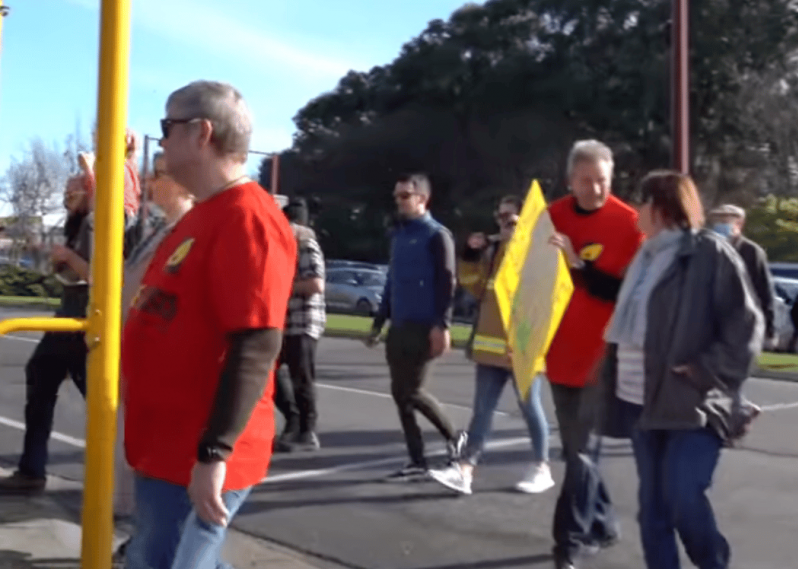Invercargill fire fighters will walk off the job for an hour on Friday, as tensions remain high after 16 months of negotiations with Fire and Emergency New Zealand (FENZ).
A further three hour-long strikes were also planned for Monday November 7, Friday November 11 and Monday November 14.
Invercargill station officer Aaron Ramsey said any businesses that wanted to show their support could don a red or yellow shirt and come out onto Dee Street between 11am and 12pm.
“It’s about pressure. They are talking but they’re dragging their feet again. I don’t think they realise the gravity of it.”
Currently attending a New Zealand Professional Firefighters’ Union conference in Whangarei, Aaron said FENZ chief executive Kerry Gregory was coming to talk to them today.
But he and others were still feeling despondent, with major discrepancies between recommendations in the recently released mediators report, and what FENZ says they can afford – a difference of “tens of millions,” Aaron said.
“We’re doing this for the safety of our community,” he said.
National Commander Russell Wood says Fire and Emergency remains focused on finding a resolution with the New Zealand Professional Firefighters’ Union despite the union issuing notices for further strike action.
“But, as we have done before, Fire and Emergency will answer all 111 for fire calls and continue to respond to fire emergencies during the periods of the strike.
“I want to reassure people this strike action will not affect most of the country which is served by our volunteer crews who will respond as normal.”
Russell said the strike action had potential to put New Zealanders at risk, but Aaron said every day without resolution was putting the Invercargill community at risk.
With substandard fleet, including a broken aerial ladder that had been out of operation for several weeks, and trucks with leaking air, their response times to emergencies were affected.
“We have to put the trucks on a compressor until they have enough air, because the handbrake won’t release. That affects our response time by at least a minute, which can have major consequences.”


